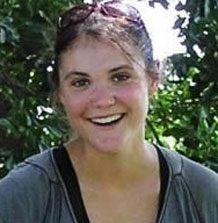project
Detinova on Safari: Forgotten Histories of Global Health
1 January 2015 - 31 December 2015

About the research
This pilot project explores the influences of Soviet tropical medicine in Sub-Saharan Africa. It takes as its focus a method of mosquito dissection pioneered in the 1940s by a team of vector biologists based at the Moscow Martsinovsky Institute. The Detinova Technique offered a way to determine the exact physiological age of the female mosquito and provided insight into the dynamics of disease transmission. Heralded as a game-changer for global malaria eradication efforts, the technique prompted new collaborations and rivalries between East and West. The global health trajectory of this method reveals alternative histories of malaria control through a rather different set of techno-scientific circulations than those commonly associated with the WHO. Extending previous ethnographic and archival research conducted in Africa with archival and memory work in Russia and the UK, this project explores the significance of this scientific exchange for our current understandings of malaria control and the Cold War, advancing a rapprochement in Anglo-Russian histories of global health.
